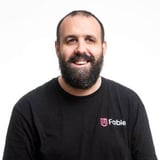Log in or create a free Rosenverse account to watch this video.
Log in Create free account100s of community videos are available to free members. Conference talks are generally available to Gold members.
Summary
The traditional ways of hiring people into research and insight careers pose significant challenges in attracting the best industry talent. In our community survey, we heard concerns about the lack of consistent standards in user research education, unclear and unarticulated requirements for entry level roles, and lack of structured, industry-wide career progression ladders. These issues can make it hard to recruit diverse talent and ensure inclusivity of career experiences in our field. If we are to embrace the full potential of the talents available to us, we must get better at assessing, understanding, and elevating talent. In this session, Joseph Williams, CEO of bias-mitigation technology company, Included.AI, and three recent entrants into the research and insights field share their lived experiences of starting out in their research careers. They discuss the current opportunities, challenges and pitfalls of seeking a job in research as well as the steps we can collectively take to improve them.
Key Insights
-
•
Talent is evenly distributed but opportunity is not, highlighting systemic barriers in entry to UX research.
-
•
Many entry-level UX research job descriptions require unrealistic prerequisites like HCI masters degrees or 1-2 years experience.
-
•
Unpaid interview exercises persist despite being a barrier and are not reflective of UX research's collaborative nature.
-
•
Paid trial periods for new hires, once common, should be reinstated to evaluate candidates fairly and collaboratively.
-
•
Mentorship and sponsorship are crucial but often unavailable or tied to paid programs, limiting access for underrepresented candidates.
-
•
Career switchers from unrelated fields struggle to find consistent guidance and experience feelings of imposter syndrome and elitism.
-
•
Internal career transitions can be bolstered by supportive hiring managers and informal sponsorships.
-
•
Networking and cohort-based learning provide significant morale and skill-building benefits during career transitions.
-
•
Soft skills like empathy, communication, and collaboration are undervalued in hiring criteria compared to technical skills.
-
•
Standardizing education and hiring processes can provide clearer pathways and fairer evaluations for UX research candidates.
Notable Quotes
"It's kind of like the Wild West in terms of educational opportunities for UX research."
"I was absolutely adamant about not giving work away for free."
"There is a lack of clarity about what’s really needed for entry level roles — every job seemed to want a unicorn."
"The interview exercises feel like free work for the employer, but UX research is a team sport."
"I was my biggest obstacle, saying no to myself because I thought I didn’t have the right experience."
"Mentorship was rare and often tied to paid programs; sponsorship was nonexistent in my career path."
"Having sponsors who put in a good word made my hiring manager comfortable despite my lack of formal experience."
"Soft skills were deemed the most important in a survey, yet job ads rarely mention them."
"Talent is evenly distributed, but opportunity is not."
"We need to focus on what people can do, not just what they have done."
Or choose a question:
















More Videos

"We document everything from product specs to implementation and design specs to prevent knowledge silos."
Ana FerreiraDesigning Distributed: Leading Doist’s Fully Remote Design Team in Six Countries
January 8, 2024

"One of the best parts is seeing people from Ops, recruiting, marketing and product interacting together in Slack."
Roy Opata OlendeHow Zapier Uses ‘All Hands Research’ to Increase Exposure to Users
August 6, 2020

"Sometimes it might be seen as something that is not necessary because our end users are practically colleagues, not actually paying customers."
Kit Unger Jackie Ho Veevi Rosenstein Vasileios XanthopoulosTheme 2: Discussion
January 8, 2024

"Hands-on activities like practicing user interviews and design sprint sketches gave people courage to try UX tactics in the real world."
Abbey Smalley Sylas SouzaScaling UX Past the Size of Your Team
January 8, 2024

"Building skepticism into users is essential because if you’re not skeptical as a designer, it’s hard to build it into your customers."
Helen ArmstrongAugment the Human. Interrogate the System.
June 7, 2023

"Great stories travel through organizations freely when they connect to what really moves and motivates people."
Bas Raijmakers, PhD (RCA) Charley Scull Prabhas PokharelWhat Design Research can Learn from Documentary Filmmaking
March 11, 2022

"Recruiting kids really means recruiting adults as their proxies and gatekeepers."
Mila Kuznetsova Lucy DentonHow Lessons Learned from Our Youngest Users Can Help Us Evolve our Practices
March 9, 2022

"Many of ChatGPT's organizing themes are at the same level as the basic themes, which is confusing and inappropriate."
Weidan LiQualitative synthesis with ChatGPT: Better or worse than human intelligence?
June 4, 2024

"Regularly ask yourself and your colleagues: what are the goals and what are the fears? That’s how you find a path forward."
Christian CrumlishAMA with Christian Crumlish, author of Product Management for UX People
March 24, 2022



















